Radical Self-Acceptance as a Jewish Lesbian Feminist
I'm the stereotypical loud, opinionated, stubborn, Jewish lesbian feminist from your Hallmark movie nightmare (not that they’d put someone like me on the Hallmark channel, except maybe to be the punchline for jokes.) You can place me in that box because I fit into it easily, and I’m happy to stay there for a while. Eventually, though, I will tear the box into little pieces because I’m bored and I hate you. I hate you because the entertainment industry says I'm a miserable woman who wants to wage a war on men and the bourgeoisie. Honestly, they aren’t entirely wrong. But I’m no Angela Davis or Claudia Jones; I have yet—emphasis on yet—to lead a revolution. In the spirit of theatrics so near and dear to my heart, I will recount some of the defining moments that made our character (me) the person she is today: the person both inside and outside of that box.
Starting when I was just thirteen years old, it became clear to me that being my authentic self might complicate my interactions with others. My middle and high school teachers, who were more often than not men, liked to play devil’s advocate with me. If I questioned the morality of poor working conditions for the sake of industrial advancement, for example, my teachers were quick to argue rather than to teach. Instead of bringing up the state of union standards during the time period, they fought my ideas, seemingly insulted that I had cast doubt on these “pioneering businessmen.”
The classroom is supposed to be a good place to use your voice, share, and make mistakes, but I felt pressure to be perfect because of the treatment I received from others. Heaven forbid I don’t triple-check my sources before answering a casual question in a ninth-grade US history class. Upon reflection, I realized I was one of the only girls in my class who frequently volunteered to speak up. This supposedly “bold” behavior helped me accumulate many names over the years, which were graciously bestowed upon me by the stars of the soccer and lacrosse teams. To list a few: “liberal girl,” “libt*rd,” “social justice warrior,” “annoying liberal,” and “PC police.”
I wore a tough face for a while, but fifteen-year-old Lilly was insecure and susceptible to their crap. After some time, I started to believe the things they said about me: I took up too much space, spoke too loudly, held my head too high. Their words constantly consumed me, and I slowly shrank myself to become less of a target. What hurt even more than the torment itself was seeing girls' eyes among those I feared to make contact with. They didn’t owe me anything beyond decency, and I knew that; they weren’t even my friends. Regardless, their coldness still felt like a betrayal. The trouble stemmed less from my politics and more from the fact that I was a girl who didn’t feel the need to censor herself, unless for her own social sanity. I spoke with conviction and didn’t back down from a fight. For educating myself and being firm in my beliefs, they punished me.
I presume their attitudes towards me came from insecurity and a long-standing culture of (internalized) misogyny. However, analyzing their behavior won’t undo the bullying I endured for about half of my freshman year; I cried every morning as my dad drove me to school and refused to eat lunch in the cafeteria. I was so preoccupied with worry and insecurity, I could barely function in school. Something needed to change, or I would lose myself forever.
At times, I’ve blamed myself for what happened, thinking, “They were right to pick on me—I made myself an easy target.” Now I realize that couldn’t be farther from the truth. Over time I’ve gathered that—to some—my presence is interpreted as a disruption that needs to be fixed; I’ve learned that to be a person who is openly Jewish, queer, or feminist is to be a disruption.
As an anti-capitalist feminist, I know that we can’t achieve gender equality until we dismantle the systems that primarily keep white, rich men in power. Philosopher Nancy Fraser best explains this notion in an interview with Jacobin Magazine: “These matters do not exist in a vacuum and cannot be abstracted from the larger social matrix in which they are embedded, which also includes other major fault lines of social injustice. So, feminists must broaden our agenda beyond conventional understandings of ‘women’s issues.’”
To put it simply: I don’t want more women to be CEOs, because that does nothing to aid women and other gender minorities of the working class. And I don’t want to hurt my bullies as they hurt me; instead, I wish for us all to recognize the circumstances that have driven us to such past cruelties so that we can move forward. I never held the same hostility towards my bullies through any of it; I didn’t want to get even or return the “favor”—I just wanted an end to all of the bullshit. I prayed for their emotional growth so that one day they’d become people they liked; people that didn’t tear others down for fun. If they healed, it meant I could too.
Following my freshman year, I began my own crucial journey of self-development and it took a lot of hard work on my own, plus the guidance of my therapist, friends, and family to get to where I am now. I learned to be patient, independent, and kind to myself; arguably, some of the most important traits a person can possess. This isn’t to say I never have moments of self-doubt or insecurity, because I do still have many. I’m not exactly grateful for my past experiences, but there’s some good that came as a result. Building myself back up from virtually nothing has been an enlightening experience, one that's allowed me to learn to be comfortable with who I am and on my own.
This piece was written as part of JWA’s Rising Voices Fellowship.

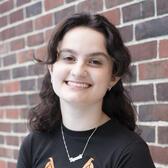
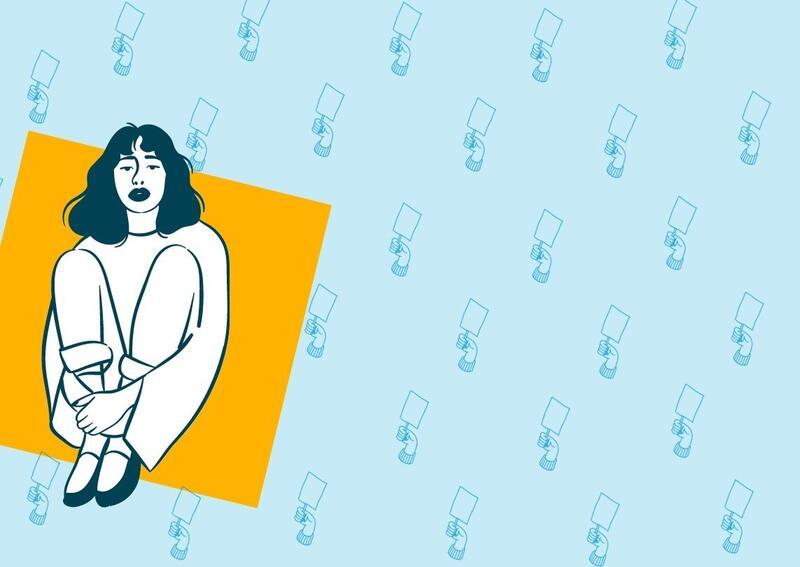
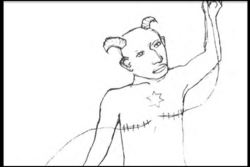
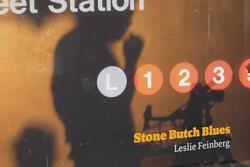
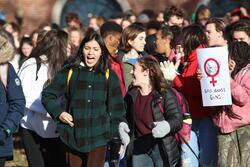


Your post is enlightening. Even though you express the doubt you’ve had among your peers you still had the strength to speak out against it. What I’m experiencing with life right now I can relate to everything you mention. I didn’t have the courage to speak up when I was a freshmen. I kept it in. Because I was taught that was what you do as a woman, and to keep my father happy. I’d love to chat at some point. I’m realizing who I am now. You seem like a good fuel
This is awesome Lilly - a great read. You’re so intelligent!!!